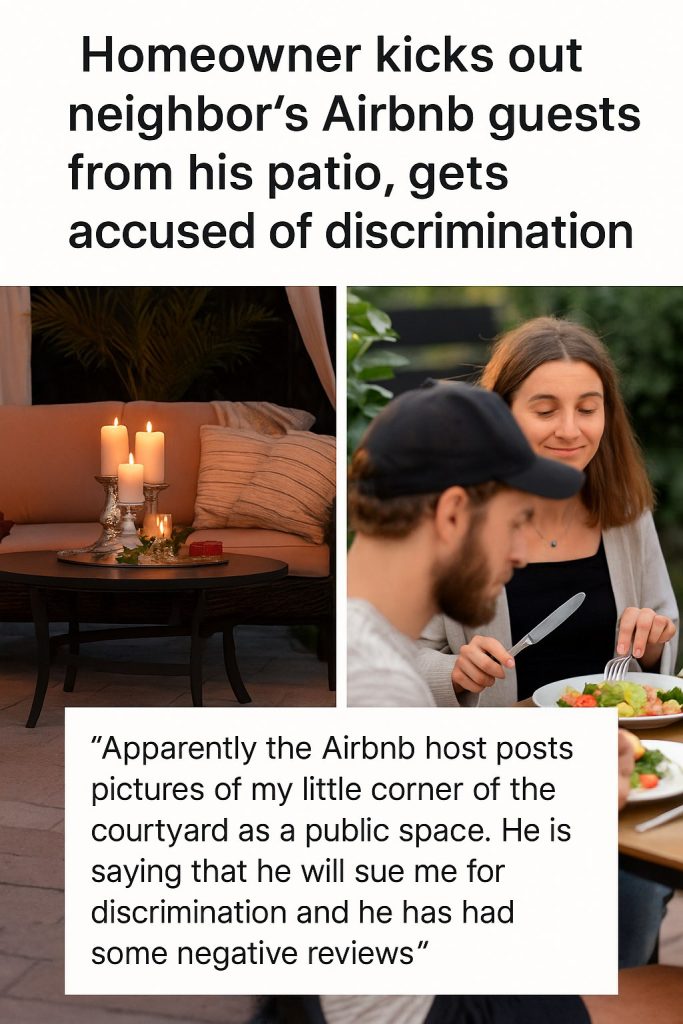A neighborhood dispute took a controversial turn recently when a homeowner asked Airbnb guests renting from a neighboring property to leave his private patio, igniting accusations of discrimination. The incident, which unfolded in a residential community, has sparked heated debate on social media about property rights, neighborly conduct, and implicit bias in the sharing economy.
The conflict began when the homeowner noticed unfamiliar individuals from an Airbnb rental occupying what he considers his personal outdoor space. Concerned, he approached the guests and requested that they vacate the patio area, asserting it was private property and not for public or rental use. However, photos shared online by the Airbnb host show the guests occupying the patio peacefully, leading to conflicting narratives about the encounter.
Following the homeowner’s request, the Airbnb host responded by accusing him of discrimination, citing racial undertones and unfair treatment targeted at their guests. According to the host, some of the guests belong to minority groups, and the eviction appeared to be motivated by prejudice rather than property boundaries. Commenters on social media have echoed these concerns, pointing to a broader conversation on how hosts and neighbors interact in increasingly shared spaces.
Legal experts emphasize that property owners have the right to control access to their private spaces, including patios, driveways, and yards. However, the situation becomes murky when neighboring properties are closely connected or shared amenities are involved. Airbnb rentals often blur the lines between private residences and commercial lodging, complicating neighbors’ expectations and rights. In this case, the homeowner insists his patio is strictly private and that no discrimination was intended.
Neighbors have weighed in with mixed opinions. Some sympathize with the homeowner’s desire to maintain his personal space and privacy, especially given the rise of short-term rentals altering neighborhood dynamics. Others support the Airbnb guests and host, contending that community hospitality and inclusivity are vital, and that unwarranted expulsions fuel division and mistrust.
The debate also touches on the responsibilities of Airbnb hosts to set clear boundaries for guests and communicate rules to neighbors. While sharing economy platforms provide guidelines to minimize conflicts, enforcement and local regulations vary widely. This particular dispute highlights the need for transparent communication and mutual respect between homeowners, guests, and hosts.
As the story continues to gain traction online, both parties have stated a willingness to resolve the matter amicably but maintain their respective positions. The homeowner denies any discriminatory intent and emphasizes his right to privacy, while the host remains firm that his guests were unfairly targeted and hopes for a broader dialogue on discrimination prevention in residential areas.
This incident serves as a reminder of how the growth of Airbnb and similar platforms is reshaping neighborhood interactions, sometimes leading to misunderstandings that quickly escalate into serious accusations. Whether this case will prompt new community guidelines or legal scrutiny remains to be seen, but it undoubtedly spotlights the challenges of balancing personal property rights with communal coexistence in today’s sharing economy.



